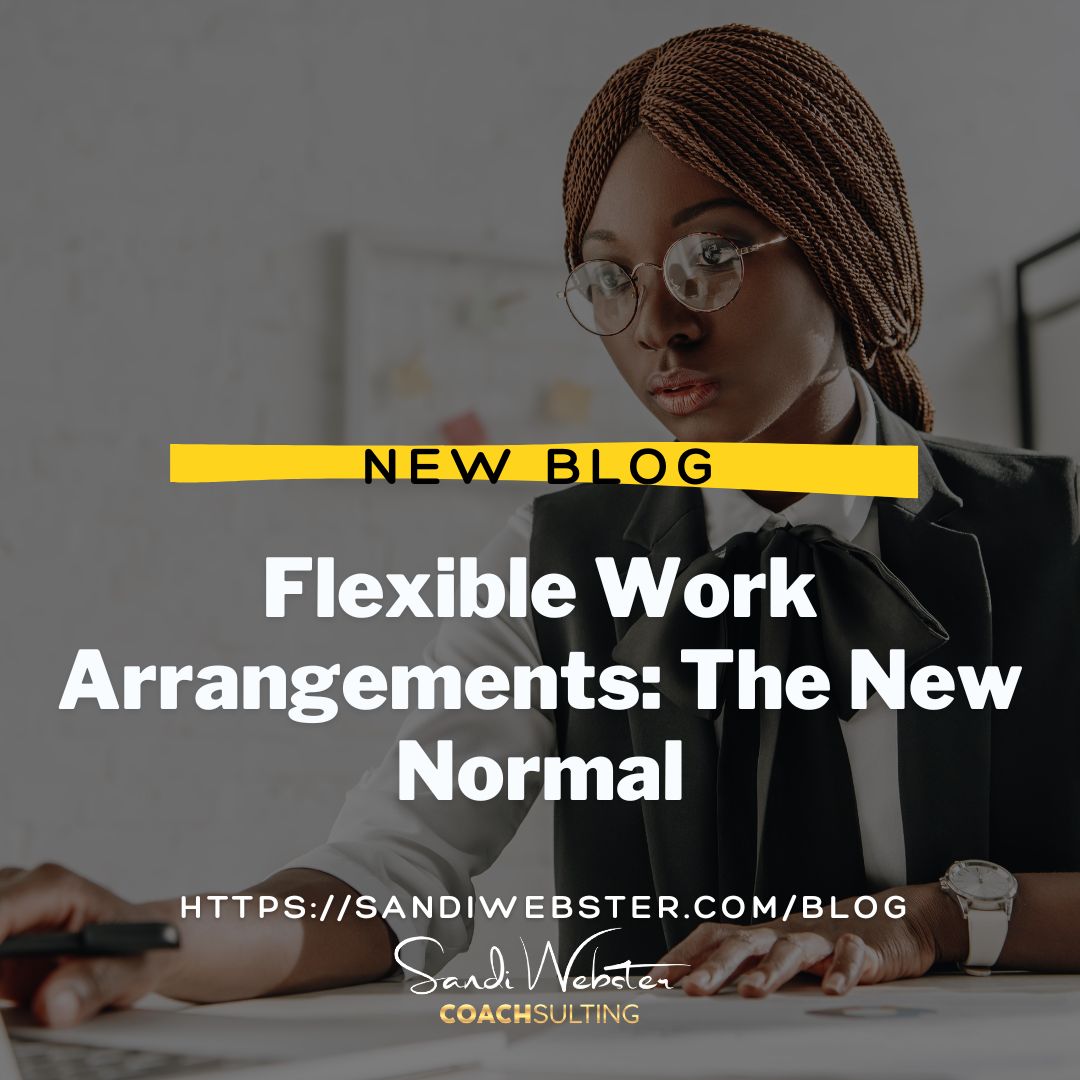Flexible Work Arrangements: The New Normal
Since the pandemic, most unessential workers work from home half the time. Companies are embracing a flexible or hybrid schedule willingly or unwillingly. Employees are leaving their in-person jobs for ones that offer flexible work arrangements. They want ones where they go into the office one day per week, or everyone comes in on the same day once per month so they can take care of the in-person networking needed at the lower management levels.

My former company, Consultants 2 Go, was built on a virtual model. We had a physical office at the Economic Development Center in Newark, NJ, because it was almost halfway between where we lived. My business partner lived about 45 minutes away in New Jersey, and I lived in Brooklyn. The commute was tolerable when we traveled in off-hours; we would start our day at home and then try to miss any traffic to the office. But, if we had to be in the office on a regular schedule, there were times I returned home because I missed the meeting due to heavy traffic or accidents.
There is no turning back. This environment is the New Normal. What are the pros and cons of having this lifestyle?
Travel
- Pro. Older employees, mothers dropping children at school/daycare, and late risers are ecstatic that they don’t have to catch a train or travel for a long time.
- Con. The employee typically starts the workday earlier and works longer for the same pay.
Focus
- Pro. Some employees are more productive because they can focus on work without the water cooler distraction or peers dropping by their desks for a chat.
- Con(s).
- Employees tend to work a more extended day because they start earlier and end later. This new habit results in burnout or an unusual amount of stress. Per Wellness at Work, 58% of employees said that burnout had affected them within the past three months.
- If a spouse works from home or children are now home-schooled, the distractions can be greater than going into an office.
Wellness
- Pro. Employees do not have to skip their doctors’ appointments for wellness care. They can also have virtual meetings with a broader network of doctors.
- Con.
- Employees work harder, usually with poor posture, resulting in back pain and even more disabilities. Sitting is now “the new cancer” due to lack of exercise and sitting behind a desk for long periods. Now, running to catch the bus doesn’t seem so bad!
- Depression rates escalated due to a lack of human interaction.
Substance Abuse
- Pro. When employees are in a physical location with others, they take steps to control their addiction.
- Con. Substance abuse escalated during the pandemic. Teenage suicide increased.
Employers must look at both sides of the flexible work arrangements that they put in place and compare it to their workforce. They need to put checks and balances in place to ensure their employees’ well-being and mental and physical safety.


